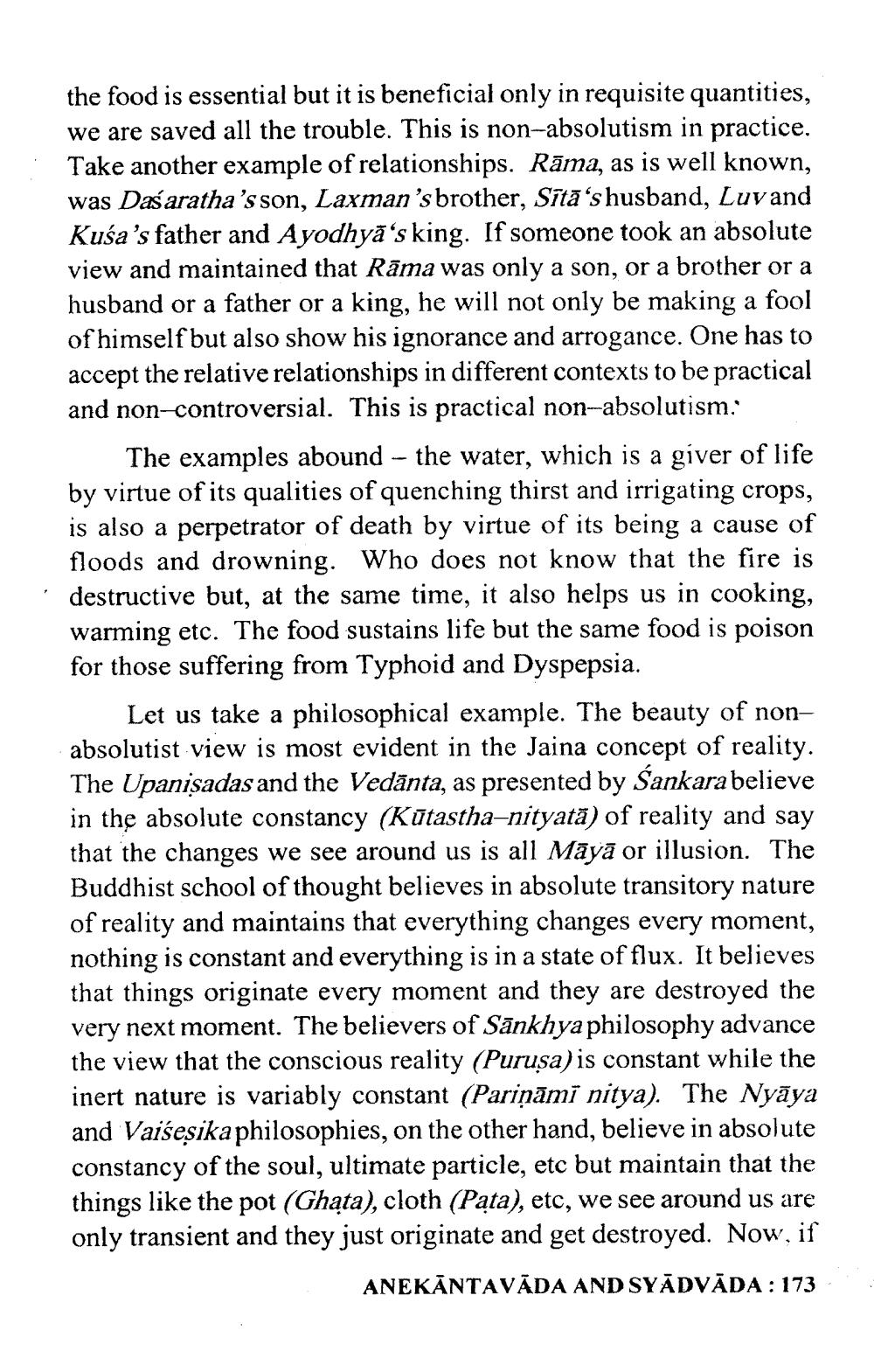________________
the food is essential but it is beneficial only in requisite quantities, we are saved all the trouble. This is non-absolutism in practice. Take another example of relationships. Rāma, as is well known, was Dasaratha's son, Laxman 's brother, Sītā's husband, Luvand Kuśa's father and Ayodhyā's king. If someone took an absolute view and maintained that Rāma was only a son, or a brother or a husband or a father or a king, he will not only be making a fool of himself but also show his ignorance and arrogance. One has to accept the relative relationships in different contexts to be practical and non-controversial. This is practical non-absolutism:
The examples abound - the water, which is a giver of life by virtue of its qualities of quenching thirst and irrigating crops, is also a perpetrator of death by virtue of its being a cause of floods and drowning. Who does not know that the fire is destructive but, at the same time, it also helps us in cooking, warming etc. The food sustains life but the same food is poison for those suffering from Typhoid and Dyspepsia.
Let us take a philosophical example. The beauty of nonabsolutist view is most evident in the Jaina concept of reality. The Upanişadas and the Vedānta, as presented by Sankara believe in the absolute constancy (Kūtastha-nityată) of reality and say that the changes we see around us is all Māyā or illusion. The Buddhist school of thought believes in absolute transitory nature of reality and maintains that everything changes every moment, nothing is constant and everything is in a state of flux. It believes that things originate every moment and they are destroyed the very next moment. The believers of Sankhya philosophy advance the view that the conscious reality (Purusa) is constant while the inert nature is variably constant (Pariņāmi nitya). The Nyāya and Vaiseșika philosophies, on the other hand, believe in absolute constancy of the soul, ultimate particle, etc but maintain that the things like the pot (Ghata), cloth (Pata), etc, we see around us are only transient and they just originate and get destroyed. Now, if
ANEKĀNTAVĀDA AND SYĀDVĀDA : 173




